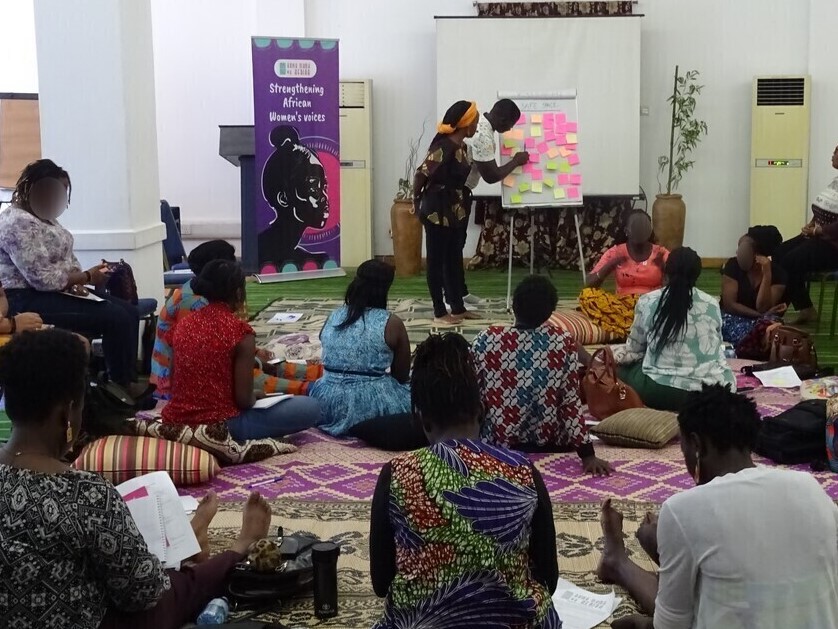Guided with the question of 'why is the sisterhood relevant in terms of support system for young feminists in the context of Uganda?', the third empirical chapter addresses the role of feminist networks enhancing young women's capacity to act in their day-to-day. How feminist solidarity manifests in practical and emotional terms is illustrated through the experience of different collaborators. Drawn from their views is a common interpretation of sisterhood as a community of mutual support, care, and growth. Its contribution becomes relevant for feminists in practical but also emotional terms. Following Sue's journey, these aspects come to be represented by the first network she belonged to within the feminist movement, created by AMwA in the wake of the leadership programme in which she participated. In this regard, the different testimonies evidence how this kind of feminist communities act as engines propelling the individual agency of young women in Uganda.
Looking into how these bonds are maintained and reinforced, the social media and the feminist discourse come to the forefront. Given the reliance of feminist groups on WhatsApp, I examined both elements through the example of an active online discussion held on this platform by the members of this network. This analysis showed how young women are using this app as a 'safe space' to relocate and reproduce their dynamics as a raising-awareness group online. In this sense, WhatsApp becomes the virtual space where they can discuss, laugh, and share experiences, reinforcing the bonds that bring them together. To this purpose, the language of sisterhood becomes crucial. The use of the word 'sister' not only seeks to promote their online engagement but also reinforce their collective identity as feminists.
Furthermore, the discussion analysed becomes an illustrative example of the feminist aim of challenging and dismantling social taboos that prevent women from thriving. The mixed response of openness and reluctance offers relevant insights into the Ugandan sociocultural environment, which is also constitutive of their ideas and behaviours. In this regard, the reaffirmation coming from the 'sisters' becomes critical in their encounter with an increasingly hostile, conservative context. In response to the social rejection emerging from closer circles, feminist networks of solidarity stand as an alternative coping mechanism to deal with the challenges encountered in this environment.


